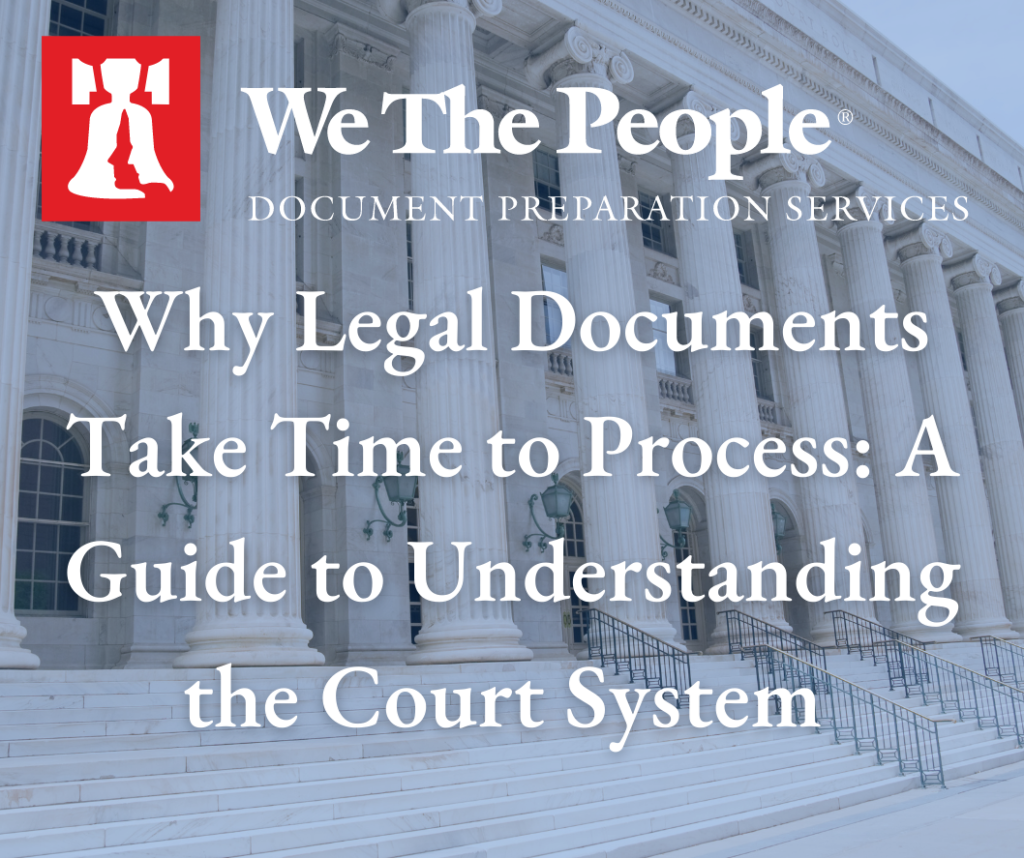 Why Legal Documents Take Time to Process: A Guide to Understanding the Court System
Why Legal Documents Take Time to Process: A Guide to Understanding the Court System
Legal proceedings involve various stages and intricacies that can contribute to delays in the processing of legal documents. While these delays can be frustrating, understanding why legal documents take time to process can help you better manage your expectations of the legal document processing timeline. In this article, we will outline factors within the court system’s inner workings that may contribute to document processing delays.
Court Workload and Prioritization
Courts handle a significant volume of cases, ranging from civil disputes to criminal matters. The sheer workload can contribute to delays in processing legal documents. Courts have limited resources, including judges, court staff, and administrative support. The allocation of these resources is a complex task, and the availability of personnel directly affects the processing time. Additionally, courts must prioritize urgent matters, such as temporary restraining orders or emergency hearings, which can further impact the processing of other documents.
Errors in Submissions
One factor that can contribute to delays in processing legal documents is the presence of errors or inaccuracies in the submissions. Mistakes such as typographical errors, missing information, or inconsistencies can lead to document rejection or the need for resubmission, which prolongs the processing time. To minimize errors in submissions, it is crucial to review and proofread your workbook information. Take the time to carefully review all information, including names, dates, case numbers, and supporting details. Verify that your information is accurate, complete, and consistent throughout your paperwork.
Complexity of Legal Issues and Cases
The complexity of legal issues and cases is another crucial factor influencing processing time. Some cases involve intricate legal arguments, extensive evidence gathering, or multiple parties. Courts must carefully analyze these complex cases to ensure fair and just outcomes. Judges need sufficient time to review the arguments, examine the evidence, and consider relevant precedents before making informed decisions. Consequently, cases with greater complexity may require more time for document processing.
Procedural Requirements and Compliance
Legal proceedings are governed by procedural requirements and rules that must be strictly followed. These requirements are in place to protect the rights of all parties involved and maintain the integrity of the judicial process. Complying with procedural rules can sometimes cause delays in document processing. For instance, specific formatting, exhibits, or supporting documentation may be mandated for certain documents. Failing to meet these requirements may result in document rejection or the need for resubmission, thereby extending the overall processing time.
Case Management and Scheduling Challenges
Efficient case management and scheduling are vital to the smooth functioning of the court system. However, coordinating schedules among multiple parties, attorneys, and court personnel can be complex. Conflicts in availability, requests for rescheduling, and the need to accommodate various proceedings can lead to delays in document processing. Courts strive to allocate resources effectively, but scheduling challenges can impact the overall timeline for processing legal documents.
Thorough Review and Decision-Making Process
Once legal documents are submitted, they undergo a thorough review and evaluation by the court. Judges carefully examine the arguments, evidence, and legal principles involved in each case. Legal research or consultations with precedents may be necessary to make well-informed decisions. The thoroughness of this review process ensures fair and just outcomes, but it can contribute to the overall processing time for legal documents.
Understanding why legal documents take time to process is essential for individuals involved in legal proceedings. The court system’s workload, prioritization of cases, complexity of legal issues, compliance with procedural requirements, case management challenges, and the thorough review and decision-making process all contribute to processing delays. By being aware of these factors, you can manage your expectations and better navigate the court system. Working closely with our team of paralegals and ensuring compliance with procedural rules will help streamline the processing of your legal documents. Remember, while delays can be frustrating, they are a result of the court’s commitment to delivering fair and just outcomes for all parties involved.

